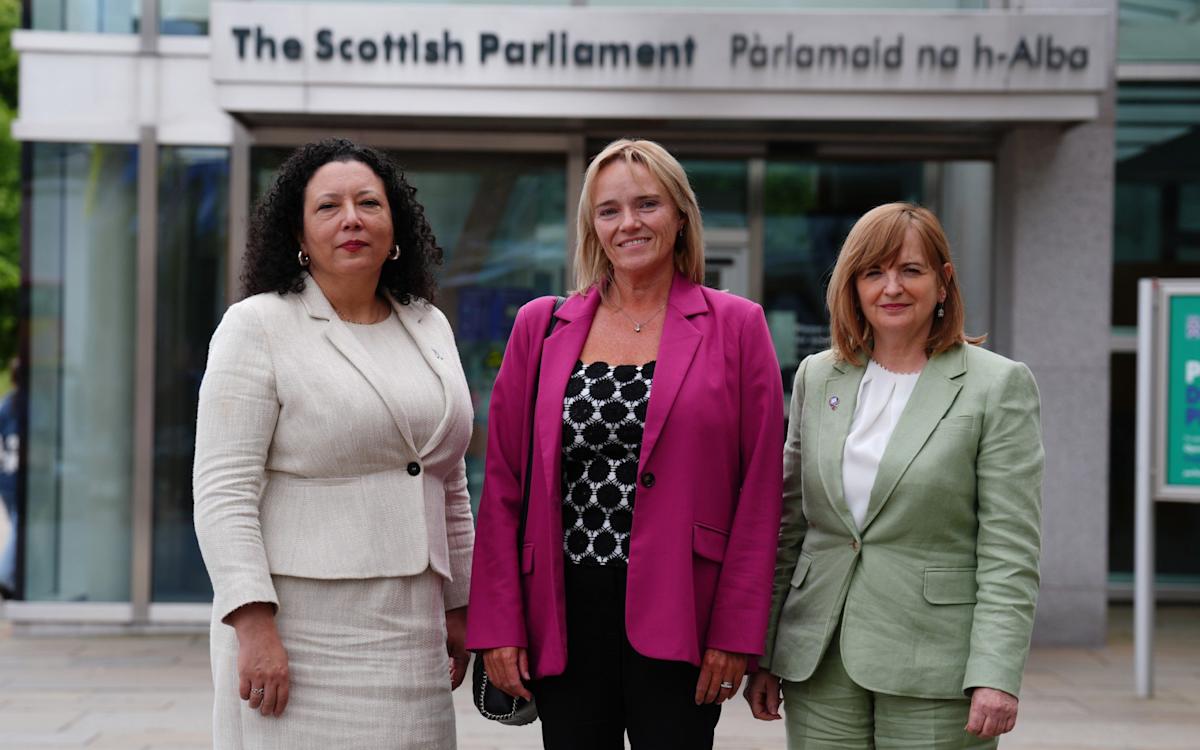By Daniel Martin
Sir Keir Starmer has told hospitals and universities to obey the law and ban transgender women from female lavatories “as soon as possible”.
The Prime Minister said public bodies must stop dragging their feet and comply with April’s Supreme Court ruling, which found that trans women are not legally women.
The judgment on the meaning of the word sex in the Equality Act means that amenities such as toilets and changing rooms have to be separated by biological sex and not-identified gender.
But two months on, dozens of NHS trusts and other organisations up and down the country have failed to change their guidance, meaning biological men are still being allowed in women’s lavatories and changing rooms.
Women’s rights groups say this puts female staff at risk because most sexual abuse is carried out by biological men.
Now, Sir Keir has lost patience with organisations that are still failing to comply with the law.
‘We’ve accepted the ruling’
The Prime Minister said: “We’ve accepted the ruling, welcomed the ruling, and everything else flows from that as far as I’m concerned.
“Therefore all guidance of whatever kind needs to be consistent with the ruling and we need to get to that position as soon as possible.”
Soon after the ruling, the EHRC came up with interim guidance that said that in places like hospitals, shops and restaurants, “trans women (biological men) should not be permitted to use the women’s facilities”.
It is now consulting on the details of its guidance, but Baroness Kishwer Falkner, chairman, has said the main thrust of the advice will not change.
Despite this, most NHS organisations and universities have said they are waiting for the EHRC guidance before updating their policies.
But the Prime Minister’s comments indicate he has little sympathy with this argument.
‘No need to wait for further guidance’
Maya Forstater, chief executive of the women’s rights charity Sex Matters, said: “This is an important intervention from the Prime Minister, given the huge number of public bodies failing to implement the Supreme Court judgment and therefore operating outside the law.
“Political leadership is essential if women whose rights are being stolen are not to be forced to turn to the courts, where public bodies will end up losing, at great expense to taxpayers.”
She added that the law is clear and there is “no need to wait for further guidance from the EHRC or anyone else”.
A growing number of public bodies are changing their guidance in light of the judgment. The Football Association, for example, has said trans women would be banned from women’s sport.
The Houses of Parliament announced last week that it had changed its position, saying that visitors should use “the facilities that correspond to their biological sex”. Trans people were instructed to use gender-neutral lavatories on the estate.
However, a large number of public organisations have still not changed their guidance.
The ruling is of particular importance for universities, many of which organise sports teams and continue to allow biological men to participate in female sports.
‘Not making changes’
Leeds University said: “For the avoidance of doubt, we are not making any changes to how we provide campus facilities.
“We will not do so unless there is clear legal obligation, and we have meaningfully consulted with those most directly impacted. This is about getting things right – not about rushing to respond.”
Liverpool University said: “Any practical implications in applying the ruling to our facilities and activities are not yet clear and along with other universities, we now need to wait for more detailed guidance.
“As such, there are no immediate changes to any university policies.”
As for the NHS, a group of eight nurses in Darlington is challenging their health trust’s policy over allowing a trans colleague to use the female changing rooms at work.
The national body – NHS England – is still to publish guidance on the Supreme Court ruling.
The NHS Confederation, which represents trusts, has withdrawn pro-trans guidance but has not yet updated it.
A number of other regional organisations have indicated their advice will not change, at least for the time being.
NHS Sussex said: “There should be no change in terms of how services are delivered as the NHS nationally considers the judgment.
“Further to this, we understand that the update provided by the Equality and Human Rights Commission has led to concern. NHS Sussex will fully participate in a code of practice consultation when it launches to ensure that the protections of the Equality Act endorsed by the Supreme Court are upheld.”
